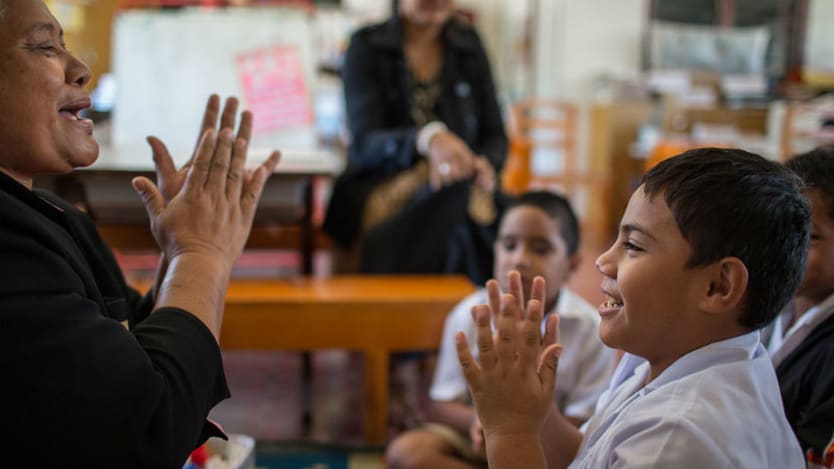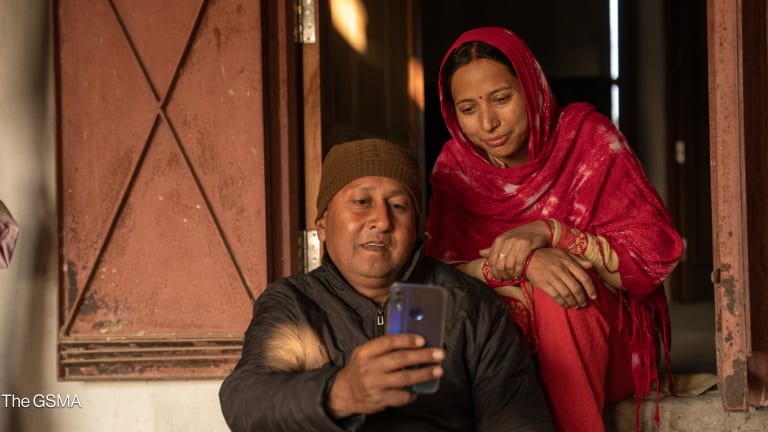Opinion: We must commit to inclusive education for children with disabilities. Here's how.

In the quest to secure a better for future for children with disabilities, the United Kingdom Department for International Development, together with the International Disability Alliance, and the government of Kenya will be hosting the first ever Global Disability Summit in London on July 24.
As it stands, it is estimated that nearly 32 million children with disabilities in low- and middle-income countries are out of school. That is more than three times the entire population of Sweden. Their “disabled status” has a bigger impact on their chances of receiving an education than their gender, location or household.
Disability-inclusive policies require disability-inclusive budgets
At this week's first-ever Global Disability Summit in London, government signatories to the Charter for Change commit to "invest in" disability inclusion. Two experts evaluate such commitments.
For too long, children with disabilities have not benefited adequately from international aid to education. Only 12 out of 51 developing country partners of the Global Partnership for Education have targets related to “inclusive education” in their education plans, notably seven had completely failed to include children with disabilities at all.
Unfortunately, there is a clear lack of political will at both national and international level. This needs to change, not through ad hoc, one-off proclamations, but through a sustained and considered approach and building an inclusive education system from the outset. Not only is this fairer, but it will be more efficient and cost-effective in the long-term.
Research funded by ESRC-DFID on disability and education provides new evidence on what governments must consider in order to ensure that children with disabilities benefit from quality education without discrimination or exclusion. It highlights the value of supporting sign language in India, explores school-readiness in Malawi; offers insights into systemic challenges in countries such as Afghanistan, Sudan, and Morocco; and advances our understanding of how to support the teaching of children facing multiple disadvantages, including disabilities, in India and Pakistan.
There is ample evidence on the action and commitments governments need to make, not just at the summit, but also beyond to make quality education a reality. The global community needs to:
Focus on the right to be counted, as children with disabilities still remain invisible in most data collection efforts. The Washington Group’s Short Set of Disability Questions are a step in the right direction as they make it possible to collect and compare data across contexts.
Go beyond “access” to talk about “quality” education as well. Children’s right to access education is talked about at length, but little focus is placed on their rights in education. This means that we must uphold their rights to be involved in learning processes which are relevant and empowering.
Develop a workforce that can address the needs of all learners, including those with disabilities. Train teachers to be more inclusive and support the development of accessible and alternative teaching and learning resources.
Generate good quality research that includes the voices and perspectives of persons with disabilities. The World Report on Disability poignantly noted that that the existing lack of data and evidence has impeded understanding and action in the field. The United Nations Convention on the Rights of Persons with Disabilities makes a plea for all research to be available and accessible.
Education is a powerful mechanism, and the time is now to invest in this vision of quality education for all. There is something everyone can do — as communities, governments, civil society, private sector, and multilateral organizations. We, as a community can make this happen for children with disabilities across the world, if we harness our collective power.
Search for articles
Most Read
- 1
- 2
- 3
- 4
- 5









